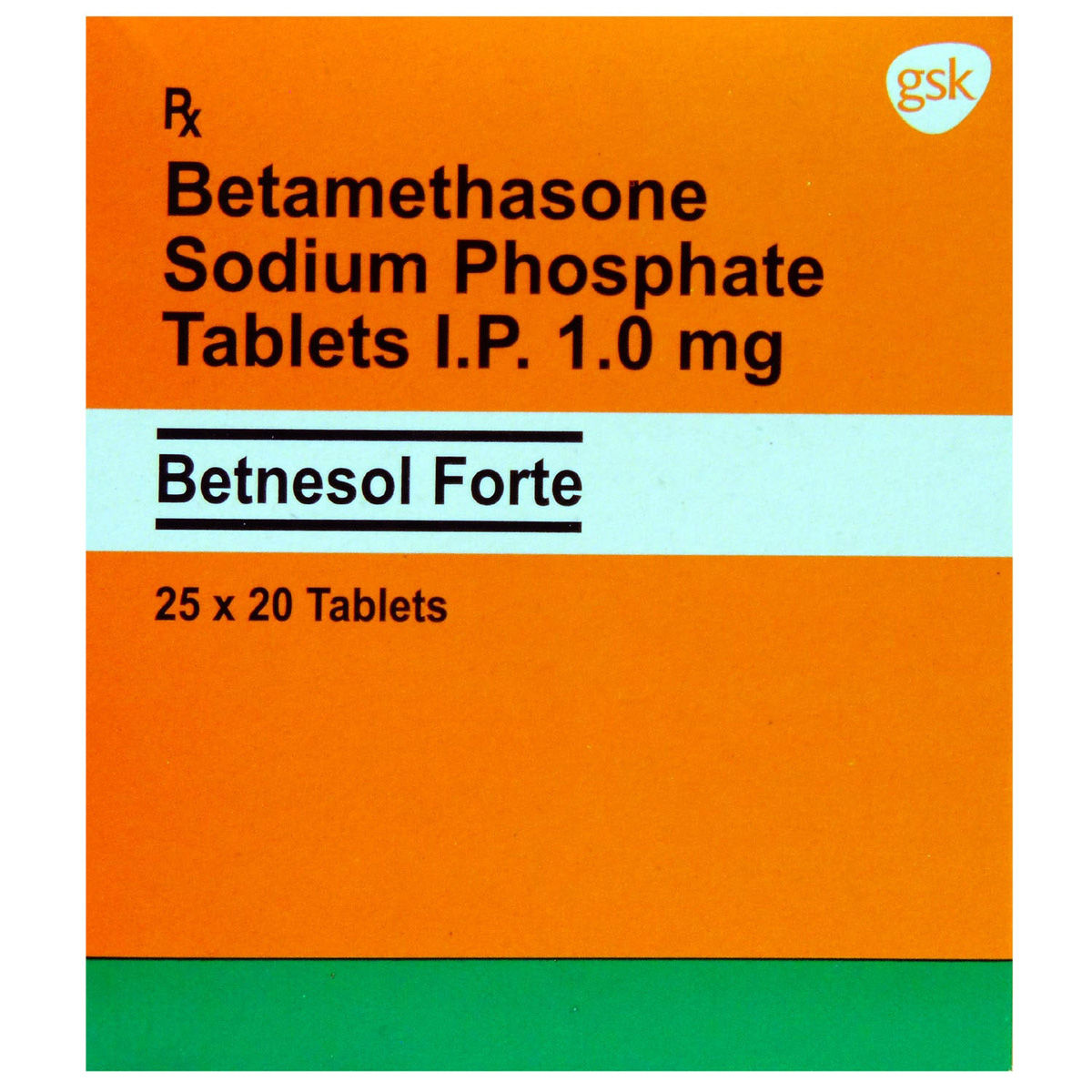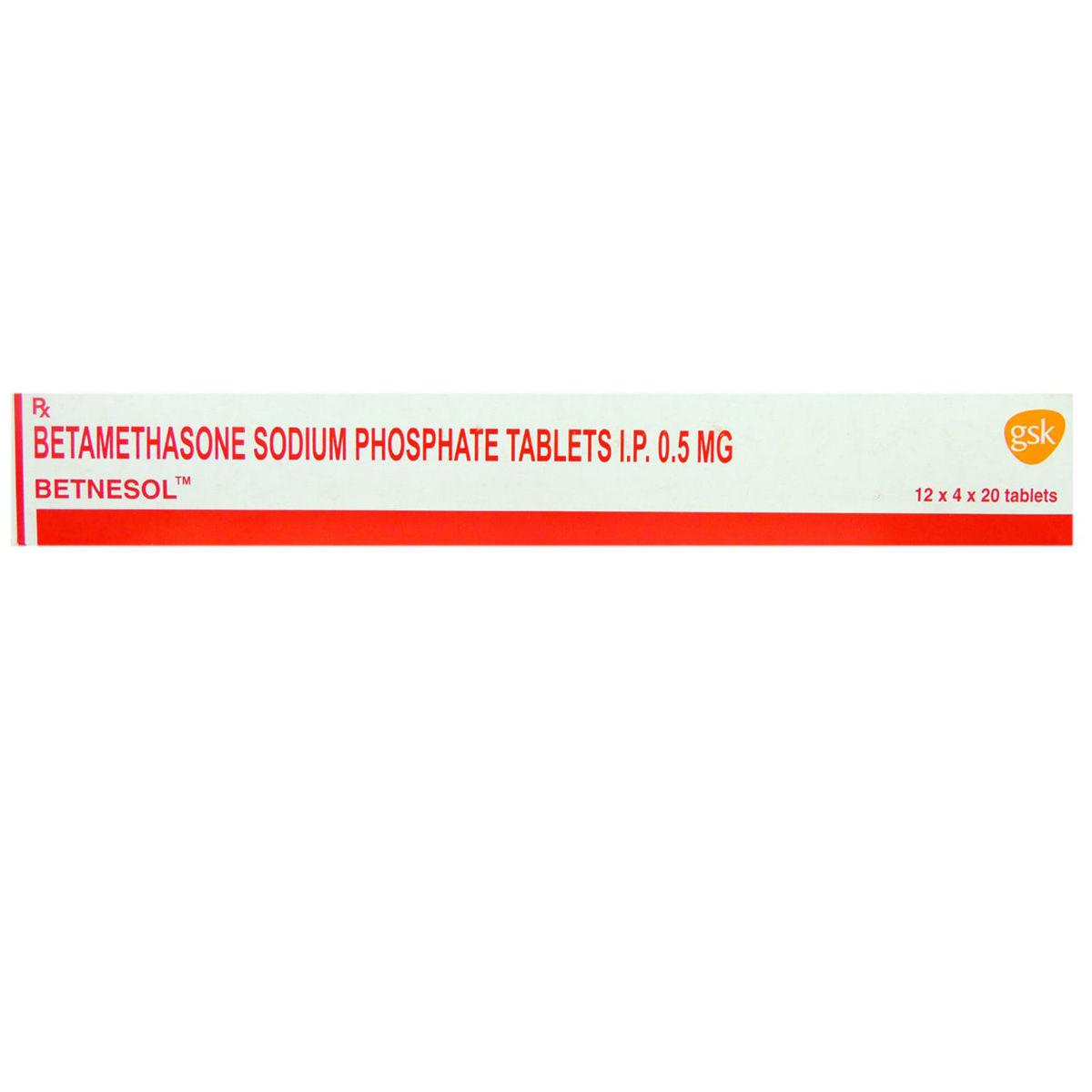Betamethasone
About Betamethasone
Betamethasone is used to prevent allergies, including swelling, itching, redness, heat, and pain caused by certain skin problems such as psoriasis (scales and itchy, dry patches), dermatitis (itchy, swelling of the skin) and eczema (itchy, cracked, swollen or rough skin).
Betamethasone contains Betamethasone, which works by inhibiting the release of certain chemical messengers in the body that cause redness, itching, and swelling.
Some people may experience skin redness, inflamed hair follicles, itching, blistering, or burning sensation at the site of application. Most of these side effects of Betamethasone do not require medical attention and gradually resolve over time. However, if the side effects persist or worsen, please consult your doctor.
If you are allergic to Betamethasone or any other medicines, please tell your doctor. If you are pregnant or a nursing mother, you are advised to consult a doctor before using Betamethasone. Do not use Betamethasone in more than prescribed doses or on a large area of skin for a prolonged time, as it may cause adverse effects. Do not wrap or cover the treated area with a bandage unless advised by your doctor. If you have diabetes, glaucoma, cataracts, adrenal gland or liver problems, or had a skin reaction to a steroid medicine in the past, inform your doctor before taking Betamethasone.
Uses of Betamethasone
Medicinal Benefits
Betamethasone is a steroid that is used to treat swelling, itching, redness, heat, and pain caused by certain skin problems such as psoriasis (scales and itchy, dry patches), dermatitis (itchy, swelling of the skin) and eczema (itchy, cracked, swollen or rough skin). Betamethasone acts inside the skin cells and inhibits the release of certain chemical messengers in the body that cause redness, itching and swelling. When the skin reacts to any type of allergens, such chemicals are released normally.
Directions for Use
Storage
Side Effects of Betamethasone
- Skin redness
- Inflamed hair follicles
- Itching
- Blistering
- Burning sensation at the site of application
Drug Warnings
Do not use Betamethasone in more than prescribed doses, or on a large area of skin for a prolonged time as it may cause adverse effects. If you are pregnant or a nursing mother, it is advised to consult a doctor before using Betamethasone. Do not cover or wrap the treated area with a bandage unless advised by your doctor. Avoid using Betamethasone for more than 5 days in children and on the face. Avoid smoking or going near naked flames as the fabric (bedding, clothing, dressings) that is in contact with Betamethasone catches fire and burns easily. If you have diabetes, psoriasis, glaucoma, cataracts, adrenal gland or liver problems, inform your doctor before taking Betamethasone.
Drug Interactions
Drug-Drug Interaction: Betamethasone may interact with drugs used to lower high blood pressure (metoprolol), pain killers (aspirin, ibuprofen), antianxiety drugs (alprazolam), laxatives (magnesium sulphate), blood thinners (warfarin).
Drug-Food Interaction: Betamethasone may interact with alcohol. Therefore, avoid the consumption of alcohol with Betamethasone.
Drug-Disease Interaction: If you have diabetes, psoriasis, glaucoma, cataracts, adrenal gland or liver problems, inform your doctor before taking Betamethasone.
Drug-Drug Interactions Checker List:
Safety Advice

Alcohol
cautionInteraction of Betamethasone with alcohol is unknown. Please consult a doctor before consuming alcohol while using Betamethasone.

Pregnancy
cautionBetamethasone is Category C pregnancy drug and is given to a pregnant woman only if the doctor thinks benefits outweigh risks.

Breast Feeding
cautionBetamethasone is excreted in human milk and is given to a breastfeeding mother only if the doctor thinks benefits outweigh risks.

Driving
safe if prescribedBetamethasone usually does not affect your ability to drive or operate machinery.

Liver
cautionTake Betamethasone with caution, especially if you have a history of Liver diseases/conditions. The dose may be adjusted by your doctor as required.

Kidney
cautionTake Betamethasone with caution, especially if you have a history of Kidney diseases/conditions. The dose may be adjusted by your doctor as required.

Children
cautionBetamethasone is not recommended for children unless advised by a doctor.
Habit Forming
Diet & Lifestyle Advise
- Eat foods rich in quercetin (a flavonoid) such as apples, cherry, broccoli, spinach and blueberries.
- Consuming food rich in probiotics helps in developing the immune system against allergies.
- Limit intake of food that might trigger allergies such as dairy products, soy, eggs, and nuts.
- Avoid consumption of foods with excess sugar as it may flare-up inflammation.
- Include fruits, vegetables, whole grains, healthy fats, and fish in your diet.
- Reducing stress and maintaining a regular sleep pattern would be helpful.
- Avoiding getting in contact with harsh soaps, detergents, and rough fabrics.
Special Advise
Avoid contact of Betamethasone with nose, mouth or eyes. In case Betamethasone comes in contact with these areas accidentally, rinse with water thoroughly.
- Avoid smoking or going near naked flames as the fabric (bedding, clothing, dressings) that is in contact with Betamethasone catches fire and burns easily.
Patients Concern
Disease/Condition Glossary
The swelling of the skin occurs when an allergic reaction or skin irritation releases several substances in the skin that widen blood vessels and cause itching, redness, pain, and swelling in the irritated area. Psoriasis is a skin condition in which skin cells multiply faster than normal, resulting in white scales and itchy, dry patches. Dermatitis is a common skin condition associated with dry, itchy, or swollen skin. Eczema is a skin condition that causes itchy, cracked, swollen, or rough skin.
FAQs
Betamethasone is used to treat swelling, itching redness, heat, and pain caused due to certain skin problems such as psoriasis (scales and itchy, dry patches), dermatitis (itchy, swelling of the skin) and eczema (itchy, cracked, swollen or rough skin).
Betamethasone works by inhibiting the release of certain chemical messengers in the body that cause redness, itching, and swelling.
You are recommended to use Betamethasone on the face only if advised by your doctor and do not use for more than 5 days on the face as the skin on face thins easily. Avoid the use of dressing or bandages on the face.
You are recommended to use Betamethasone for as long as your doctor has prescribed it. However, if the condition does not improve after 2 weeks of treatment with Betamethasone, please consult a doctor.
If you have psoriasis, you are recommended to use Betamethasone as advised by your doctor only. You are advised to apply Betamethasone under an airtight dressing if you have thick patches of psoriasis on knees or elbows. However, if you experience any difficulty while using Betamethasone, please consult a doctor.
No, Betamethasone is not recommended to treat acne as it may worsen the condition. Betamethasone is only used to reduce itching, swelling and redness caused due to certain skin diseases such as psoriasis, eczema or dermatitis. However, please consult a doctor before using Betamethasone.
No, you are not recommended to stop using Betamethasone without consulting your doctor as it may worsen the condition. Therefore, take Betamethasone for as long as your doctor has prescribed it, and if you experience any difficulty while taking Betamethasone, please consult your doctor.
No, Betamethasone is not used to treat diaper rash or redness. However, please consult a doctor before using Betamethasone in children.








